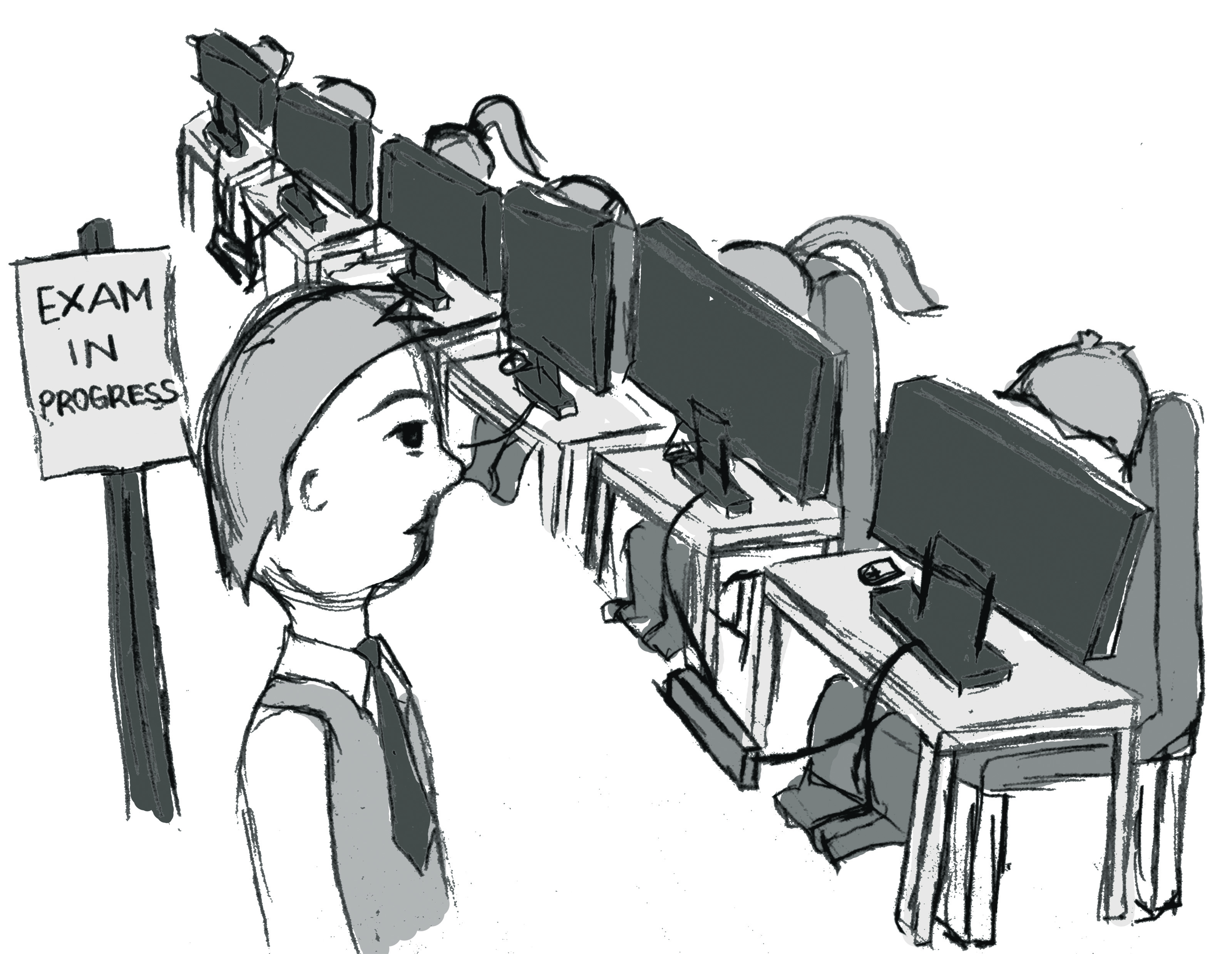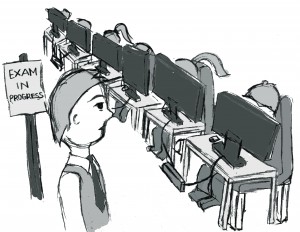Exams need computer integration


As we venture further into the 21st century, we are all experiencing the “information age.”
Although numerous advancements towards the integration of technology into pedagogy have been made over the past decade, educational institutions need to encourage the use of technology in all parts of university life.
Just a few weeks ago, most students were spending countless hours preparing for exams.
Anybody who was required to write short answers or essay components for their tests probably remember having a sore hand and an exhausted mind afterwards.
I believe technology could increase the exam performance of many students at Laurier, or any other educational institution.
The use of computers for typing answers for exams with writing components is beneficial for both students and faculty.
Most of us acknowledge that exams will be completed online or using a computer in the future, so why not give Laurier the chance to be a leading example by starting now?
There are a number of possible benefits to using computers during exams since many students are capable of typing more words per minute than by hand writing.
If these students were provided with technology, they could spend more time planning their arguments and answers instead of rushing into the actual writing due to lack of time.
In addition to planning, the people taking the exams could more easily edit their work by inserting, removing, or changing sentences as they need.
When editing a hand-written exam, the modifications can become confusing since there is limited space for adding new content. Students are not the only group who would benefit from the use of computers on exams.
Professors would no longer be required to read messy and rushed hand writing and could print off typed exams resulting in more efficient marking.
Better yet, if professors opted to view exams online or on their computer screen, they would be saving paper and making this option environmentally friendly.
There are some foreseeable issues with the use of computers on exams, but each can be avoided with careful planning.
Some opponents may suggest that cheating would become an issue, but like hand-written exams it can be prevented.
Software can be purchased from third-party companies who design programs to lockdown a computer to prevent cheating on exams.
Another possible issue is the limited amount of computer spaces at Laurier. This problem is more difficult to solve but the program could commence with only a small number of classes using the labs we already have.
If the use of computers is well received, the university could plan to gradually add more devices to allow more students to use technology for their exams.
Some students may also prefer hand-writing over typing, in which case the option to do so should be granted.
In this case, professors could have a few traditional exam booklets available to accommodate these requests.
Technical problems would probably be the most difficult issue to predict and prevent since technology can fail at anytime.
Nonetheless, the benefits of using computers for exams would far outweigh the possible risks. Like all changes, this one should be made gradually.
I am not asking Laurier to immediately give all classes computers to use for this purpose. Instead, I would recommend that research be initiated to measure the performance difference of students who are able to use technology versus those who hand-write their exams.
If the results are positive, a few classes could start using computers as a test run.
If these classes successfully use the computers without major issues arising, Laurier could develop a long term plan for the complete integration of technology into exam writing.
letters@thecord.ca


